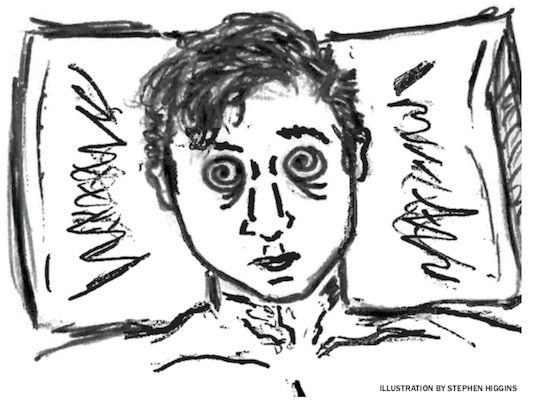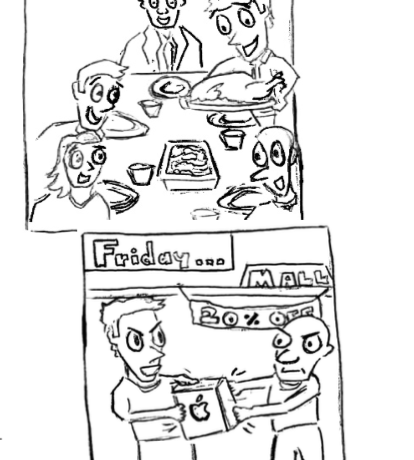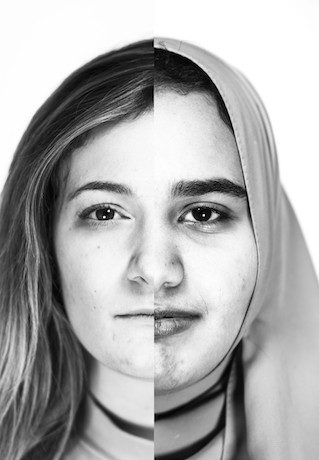By Angela McParland
Design Consultant
“Honestly, I think cutting out my own uterus would be less painful than my period.”
It was an accepted truth. Periods were the worst. They hurt. They ruined your underwear. They halted your plans for a couple days. So when I said this, no one batted an eye.
I’ve been snuffed by doctors and friends whenever I say that my period is causing me excessive pain. They told me that it was just a part of being a woman and that I would either get used to the pain or that it would lessen over time. I’ve been blamed for being underweight, for not eating enough vegetables, for not exercising enough.
This is another one of those “women’s issues” that has been largely ignored by the medical establishment, and proves uncomfortable for most people to talk about. Maybe you are even having a hard time reading this.
I realized something was really wrong at 19 when my cycles, which should be 28 days total with five to seven days of bleeding, became 14 days long with me bleeding heavily for 10 of those days. I was put me on birth control to regulate my cycle. But pain has continued to this day.
Despite my suffering, it took nine years and eight doctors before I got a diagnosis.
Endometriosis.
One in 10 women have endometriosis, a menstrual disorder in which tissue that sheds during a woman’s period grows outside the uterus. The tissue still grows and bleeds in response to changes in hormones during her cycle, except this tissue doesn’t have a way to exit the body. The tissue accumulates over time and can cause lesions, scars, cysts, infertility and the fusion of organs among many other complications.
Some women who have endometriosis show no signs of it, but for others it becomes a disability.
To me, endometriosis feels like a knife being continuously dragged through my uterus. In response I turn the skin on my abdomen bright red every night with my heating pad for fleeting pain relief. I’m nauseous after the smallest drink of water. If you tell me to do yoga I’ll just do child’s pose all day. I carry my phone with me to the bathroom in worries I might pass out there. I’m lucky if I’m functional for seven hours on a good day or two hours on a bad one.
Despite it being as common as asthma or diabetes and estimated to cause at least one third of infertility cases in women, many doctors have no idea what it is and very little research has been done on it. No one even knows for sure why it happens in the first place. Some doctors have even asked me if I’m feeling this pain because I harbor negative feelings towards my period.
It can take a woman an average of 7.5 years to get an official diagnosis with women going from doctor to doctor and doing test to test to only hear that their results are normal.
Endometriosis occurs on the cellular level, so the only way to diagnose it is through laparoscopic surgery, where the doctor internally looks at the entire abdominal and pelvic area to remove endometrial tissue and scars where it doesn’t belong. Surgery also helps reduce overall pain and is performed about every two years or as needed.
My surgeon told me 90 percent of women are symptomless for at least a year after the surgery. But I am a part of the 10 percent.
Medications often don’t have lasting effects. Four times the normal dose of ibuprofen doesn’t even begin to put a dent in my pain. I’ve changed my birth control, a way to halt the growth of the problematic tissue outside the uterus, a total of seven times in the past two years (make that eight next week). In theory, I shouldn’t have a period at all but I’ve bled through five pairs of underwear in the past week.
If the medication I’m on now doesn’t work, the doctors want to force my body into artificial menopause. If that doesn’t work, a hysterectomy, the removal of the uterus. But none of these are guaranteed to be cures.
Endometriosis affects a lot more than I could ever hope to cover here, but my hope for you is to keep in mind that debilitating period pain is not normal, and that it is very likely that if you know a woman, there is a one in 10 chance she suffers from endometriosis like me.
There is nothing easy about this type of suffering. But that’s why it’s so important to acknowledge and read about endometriosis. We need research, we need compassion, but most of all, we need relief.



